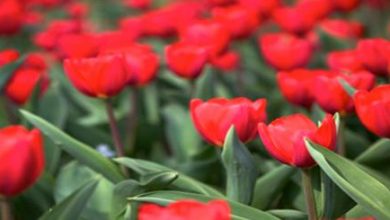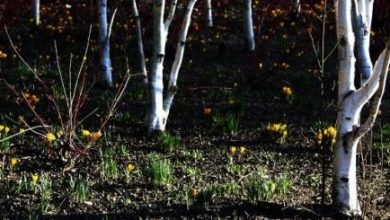THE COMPANIONS OF THE GARDEN

According to some reports, the story most likely takes place in Saba or Yemen. Historians have different theories as to the location of this garden, but we shall not examine this detail as it does not add value to the lessons to be learnt from this story.
According to reports, there was an old man who owned an orchard that bore plentiful fruit. Every season, at harvest time, he would give the first cut of his crops to the poor and needy and only used what remained. This practice was so renowned that the poor looked forward to every harvest season. As with the characteristics of pious people, the old man was also extremely generous in giving charity and taking care of the needy.
The man had three sons, and when he passed away, they inherited his orchard. However, they did not inherit his piety and generosity, and resented the idea of having to share their wealth with the poor. They felt a sense of entitlement to all the fruits there, overlooking that this was the bounty of Allah that they should, as believers, share with the less fortunate.
Therefore, after some time, the brothers decided to break from tradition and bar the poor people from entering the orchards during the harvest season. In fact, they even went further, swearing to pluck the fruits in secret in the early morning, so that none would be left for the poor. At no point in their scheming did they remember to mention “Insha Allah” (if Allah wills).
Verily, We have tried them as We tried the people of the garden, when they swore to pluck the fruits of the (garden) in the morning, Without saying: Insha’ Allah (If Allah will). (Al Qur’an 68:17 – 68:18)
One of the brothers was not comfortable with this plan. He wanted to continue the legacy left by his father, but he did not voice his opinion strongly enough, nor did he prevent his brothers from implementing their plan. Eventually, not only did he fail to counsel his brothers adequately, but he also followed them to the garden when they wanted to execute their evil plan.
It is also noted that like most of the stingy and greedy, the brothers were not thankful for the blessings of Allah. They attributed the abundant harvest to their own skills and abilities, without giving due recognition that the trees only bore such beautiful fruits because of the power of Allah.
The gardens bore abundant crops, and giving the best in charity would not have deprived the brothers in the least. However, their discontentment sickened their hearts with the disease of stinginess, accumulation and love of dunia. Such are the characteristics of the stingy: they fail to attribute their provisions to Allah, always feel shortchanged and deprived, and always hunger for more.
One day, during the blackness of the night, Allah caused the garden to catch fire. All the trees were razed to the ground, leaving everything in cinders.
Then there passed by on the (garden) something (fire) from your Lord at night and burnt it while they were asleep. So the (garden) became black by the morning, like a pitch dark night (in complete ruins). (Al Qur’an 68:19 – 68:20)
The brothers were unaware of this disaster. As soon as morning broke, they called to one another and set forth secretly but confidently to reap the harvests of the garden in secret.
Then they called out one to another as soon as the morning broke, Saying: “Go to your tilth in the morning, if you would pluck the fruits. So they departed, conversing in secret low tones (saying), No Miskin (poor man) shall enter upon you into it today. And they went in the morning with strong intention, thinking that they have power (to prevent the poor taking anything of the fruits therefrom). (Al Qur’an 68:21 – 68:25)
Imagine their shock when they saw their beautiful orchard in ashes. Not a single remnant remained. Their plan backfired, and while there was nothing left for the poor, they were also deprived of the entire harvest themselves. With the trees destroyed, it meant that there would not be any future harvests until the garden was rehabilitated, if it were even at all possible.
But when they saw the (garden), they said: “Verily, we have gone astray,” (Then they said): “Nay! Indeed we are deprived of (the fruits)!” The best among them said: “Did I not tell you: why say you not: Insha’ Allah (If Allah wills).” They said: “Glory to Our Lord! Verily, we have been Zalimun (wrong-doers).” Then they turned one against another, blaming. They said: “Woe to us! Verily, we were Taghun (transgressors and disobedient).” (Al Qur’an 68:26 – 68:31)
This was a very bitter lesson, but the brothers realised that they had only themselves to blame for Allah’s punishment. At that point, all of them felt guilt and remorse, and turned to Allah in sincere repentance for their sins, for they understood that what they had attempted to do was both wrong in this world, and would have grave penalties in the hereafter.
“We hope that our Lord will give us in exchange a better (garden) than this. Truly, we turn to our Lord (wishing for good that He may forgive our sins and reward us in the Hereafter). Such is the punishment (in this life), but truly the punishment of the Hereafter is greater if they but knew.” (Al Qur’an 68:32 – 68:33)




